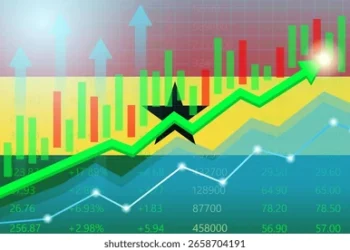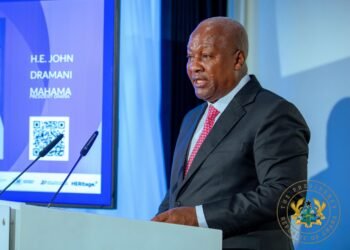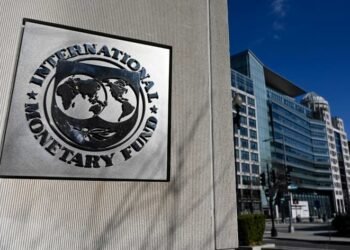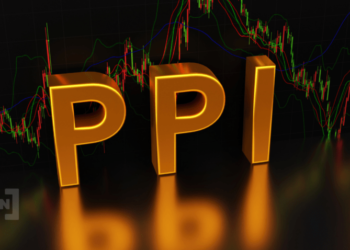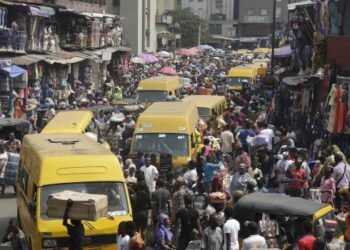Professor Peter Quartey has suggested that the Monetary Policy Committee (MPC) of the Bank of Ghana should consider increasing the policy rate to attract foreign investors in the domestic bond market.
According to him, a marginal increase in the policy rate may play a key role in attracting investors as investor confidence in holding the country’s debt continue to wane.
“From what we have seen now, it is very unlikely the policy rate might be reduced. It’s likely either it will be increased or maintained. We’ve also heard instances where foreign investors are exiting the domestic bond market. So, if we don’t have enough reserves to cushion us, we could as well increase the policy rate to attract foreign investors.
“Otherwise, we will continue to experience some capital flight. The balance still remains, as to whether we maintain the policy rate, that’s if we have enough reserves to cushion us and accommodate any exit in the bond market. If not, then, a slightly upward adjustment of the policy rate may stabilize the likely exit of foreign investors”.
Prof. Quartey
The Director of the Institute of Statistical, Social and Economic Research (ISSER), however, warned that a hike in the policy rate from the current 14.5% could also have some repercussions on the lending rates. He explained that banks will also adjust their lending rates and that could have repercussions on the cost of doing business in the country.
Rising inflationary expectations
Speaking ahead of the 104th MPC meetings scheduled to commence on January 25, 2022, the ISSER Boss told the Vaultz News that inflationary expectations are rising and that will feature prominently in the discussions of the MPC during its review of the economy.
Prof. Quartey explained that global inflation is on the increase and that may likely affect inflation expectations. According to the Senior Economist, the benchmark values withdrawal, even though now suspended, will likely have inflationary effects when implemented. Prof. Quartey stressed that “inflation expectations remain a little bit higher than previously”.
Despite the rising inflationary pressures, the ISSER Boss pointed out that the IMF and the World Bank have projected positive growth rates of about 5 or 6% for Ghana which he believes, could have some dumping or positive effect on inflation.
“If goods and services increase, that could minimize or reduce the inflationary effects. When the monetary policy committee of the Bank of Ghana is analyzing the policy rate, they look at the GDP growth rate, they look at inflation expectations, they look at exchange rate etc. All these will come to play and perhaps the policy rate might be increased slightly or might be kept based on the net effect of all these; the growth rate, the exchange rate and then inflationary expectations”.
Prof. Quartey
Parliamentary impasse and investor confidence
Bloomberg earlier warned in an article that the ongoing impasse in parliament may have a significant impact on investor confidence in the Ghanaian economy. Commenting on this, the ISSER Boss said: “that’s true. I have said it before that this impasse will affect investor confidence”. He explained that since the E-levy is expected to generate about GHS6.9 billion, if that’s not resolved on time, it will affect revenue mobilization and the fiscal deficit targets will also be badly affected.
“And then also, no investor wants an unstable environment; finance doesn’t like noise. Any unstable environment would drive away foreign investors. One of the things they look out for is political stability and macroeconomic stability. If within the governance cycle, there is an impasse, there is in-fighting and disagreement here and there, certainly, it will affect investor confidence and I can sense that”.
Prof. Quartey
He highlighted that there are number of requests from investors, from key development partners and other international organizations wanting to understand what is going on currently in the Ghanaian economy.
“It tells you that its generating some level of uncertainty on their minds, that’s not good. Anytime you see a lot of international investors, banking institutions and others trying to understand the true state of the economy, it tells you there’s some level of uncertainty they want to clear on their minds and that slows down investment”.
Prof. Quartey
E-Levy
The ISSER Boss stated that once the Finance Minister called for consensus building, then, that should bring a win-win situation and the government should not insist on charging the rate it announced in the 2022 budget. He added that since telecos are absorbing 0.25%, the rate that government charges must be lower than the 1.75%.
“I would expect that we don’t end up with the 1.75%. I still stand by my point that if you charge a punitive rate, people have alternatives which they would use and you are not likely, given the elasticity, to generate the amount of revenue you anticipate and that will not auger well. Rather, charge a lower rate and let people continue to use the service, and then you generate enough revenue from this levy”.
Prof. Quartey
Ken Ofori-Atta, stated in a press conference last week that the E-Levy is a necessary tool to increase the country’s Tax-to-GDP from the current 13% to 16% and above, “guarantee that we all pay”.
READ ALSO: Fitch Corrects Ghana’s Credit Rating Action on Senior Unsecured Debt




